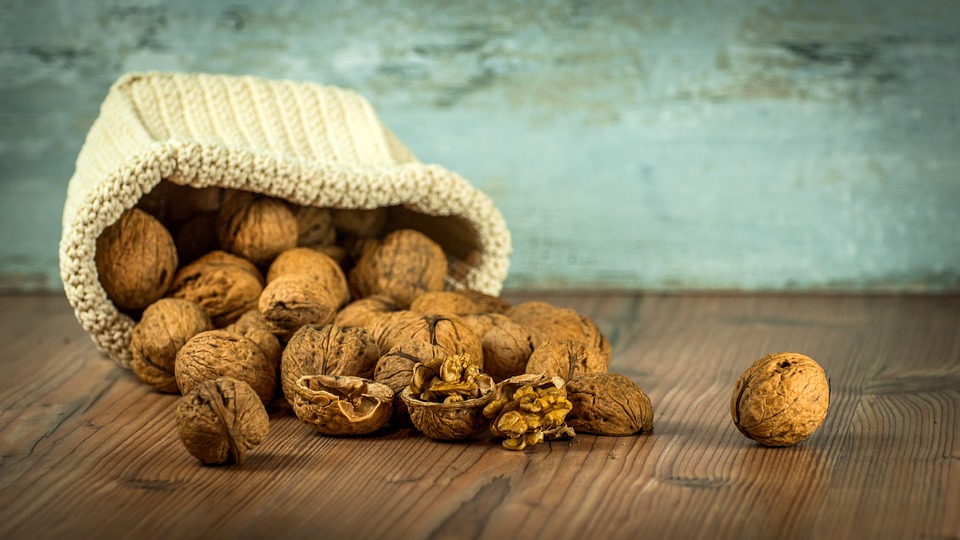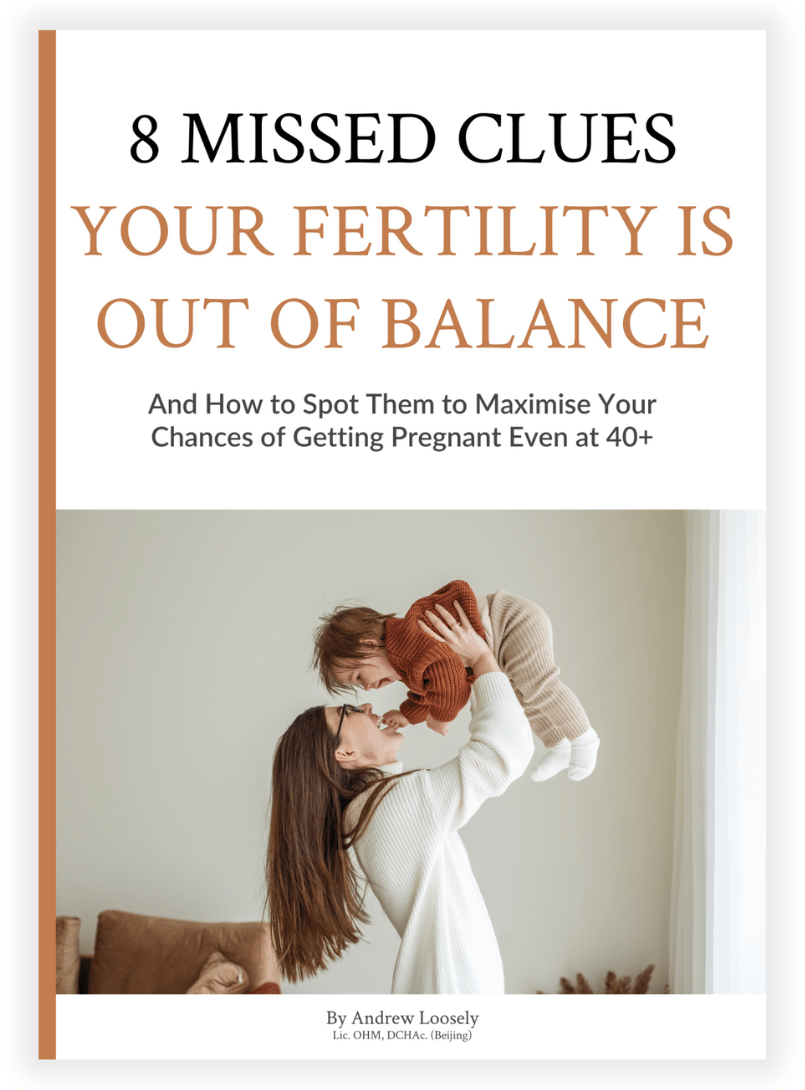Can Walnuts Improve Sperm Quality?

It’s thought that the Walnut tree was introduced to China in the 2nd century BC, by a famous official called Zhang Qian.
Since that time Walnuts have played a huge part in Chinese healthcare, as a general health and fertility tonic. Eating 3 walnuts a day was believed to support this action.
Interestingly a recent study (1) found that eating 70g of walnuts a day for 12 weeks increased male sperm count and fertility by reducing lipid peroxidation, which damages sperm cells.
So again, we can see that the ancient people had a good understanding of using foods as medicine, and science is now confirming this for us.
Walnuts are made up of around 65% fat and 15% protein meaning they are a great source of energy and packed with health-benefiting nutrients, phytochemicals, antioxidants, vitamins, minerals, and Omega 3 & 6 fatty acids.
This makes them beneficial to brain health, heart health and fertility!
100g of walnuts contain;
- 167% Copper,
- 148% Manganese,
- 139% Vitamin E,
- 49% Phosphorus,
- 41% Vitamin B6
- 40% Magnesium,
- 36% Iron,
- Vitamin B1 28%,
- Zinc 28%,
- Folate 24%
CHINESE FERTILITY MEDICINE USE IT TO:
- Treat Yang deficiency
- Treat Dampness
- Treat Qi Deficiency
YANG DEFICIENCY
Yang Deficiency is the Chinese Fertility Medicine term used to describe a lack of activity, warmth, or metabolism within your body.
It basically indicates an under-activity of the body – often related to the adrenal function, or the Hypothalamic-Pituitary-Adrenal axis. This axis regulates hormone production and release, and is also involved in the regulation and production of energy and warmth.
Yang Deficiency often manifests as Thyroid issues, particularly Hypothyroidism and Hashimoto’s Thyroiditis as both of these are caused by an under-active metabolism.
Click here to read more about Yang Deficiency:
DAMPNESS:
Dampness is the word used in Chinese Fertility Medicine to describe an overabundance of negative types of fluids that have accumulated in the body.
This includes: mucus, phlegm, or water accumulation (edema) that build up over time in different areas of the body.
A variety of fertility issues can arise from having too much Dampness including: immune disorders, fluid retention, circulatory issues, bacterial and fungal overgrowth, and other inflammatory diseases.
Reducing dampness can take some time, but the physical effects you receive will be worth it!
Click here to read more about Dampness:
QI DEFICIENCY:
Qi is the word used in Chinese Fertility Medicine to describe energy, life force, or vitality inside and outside the body.
Qi is the non-physical aspect of your body that makes all of your organs and systems work.
This means that it’s vital for the function of all aspects of your fertility, and pregnancy health too. When your Qi is deficient your body struggles to function efficiently, and this can lead to a variety of fertility issues.
When Qi becomes more severely deficient you will likely present with hormone imbalance, typically with reduced Progesterone, Testosterone and/or FSH levels. In some cases the FSH can rise and present itself as being elevated, due to the ovaries or testes being underactive and sluggish (tired).
Click here to read more about Qi Deficiency:
Key nutrients are:
Vitamin B1: Thiamine is involved in the production of energy through the breakdown of sugars and carbohydrates. This is important for cellular health, which may also influence the health and energy of sperm and egg cells. It’s also important for energy support during pregnancy.
Vitamin B2: Research shows that Riboflavin can act as an antioxidant, which helps to combat against harmful free radicals. Free radicals are known to negatively impact sperm and egg health, and so antioxidants are a vital part of the human diet.
Vitamin B3: Niacin as with most other B vitamins is involved in energy production within the mitochondria of your cells (the powerhouse of the cell). Pregnancy requires good levels of niacin, as does breast feeding.
Vitamin B5: Pantothenic acid is involved in the production of hormones, along with cholesterol, and so is vital for maintaining fertility health.
Vitamin B6: Pyridoxine is involved in breaking many types of chemical bonds and is a component of many enzymes – which are involved in breaking down foods and substances, and also regulating steroid hormones.
Vitamin B9: Folate is an important nutrient for general and fertility health. It’s involved in the creation of DNA as well as the building of proteins, and many other important functions including the healthy development of your baby’s’ spinal cord. During pregnancy folate also supports the growth of the placenta and helps to prevent several types of birth defects, especially those of the brain and spine.
Vitamin E: Vitamin E is an antioxidant that helps protect cells against damage caused by free radicals. This nutrient is really helpful in protecting sperm and egg cells from free radical damage, which can damage the DNA of the cell and may lead to morphology issues – in sperm and eggs.
Vitamin F: This is a group of nutrients called Essential Fatty Acids, which are important for all round health as well as your fertility as they are also involved in hormonal function and health.
Vitamin A: Is necessary for the growth and repair of many body cells including bones, teeth, collagen and cartilage. It’s also involved in cell differentiation where cells become specific types of cells such as a liver cell or a blood cell. This is vital for the development of your healthy baby. Supplementation does not offer balanced forms of Vitamin A.
Vitamin C: For fertility health Vitamin C is important in the process of absorption and also in its ability to support the luteal phase of the menstrual cycle.
Vitamin K: Vitamin K is an essential nutrient necessary for responding to injuries as it regulates normal blood clotting. Vitamin K can be particularly useful if you suffer from heavy and/or painful periods as it can help slow down the blood flow and reduce cramping.
Sodium: helps with the regulation of blood pressure and volume, and fluid maintenance, to ensure you have enough fluid around your cells. This is important for the health of all cells including egg and sperm cells.
Potassium: Is an electrolyte which counteracts the effects of sodium, helping to maintain consistent blood pressure levels – another important element for pregnancy.
Phosphorus: Is an element that plays an important role in how the body uses carbohydrates and fats. It is also needed for the body to make protein for the growth, maintenance, and repair of cells and tissues. It is essential in our diet and particularly in children when growth and development occurs.
Magnesium: Supports a healthy immune system as well as keeps bones strong. It is also great for stress and combined with vitamin B6 can help induce sleep and alleviate symptoms of bloating and weight gain associated with PMS.
Manganese: is a naturally occurring mineral which aids in the formation of connective tissue, bones, blood-clotting factors, and sex hormones.
Iron: Is a mineral that the body uses to carry oxygen in the blood and plays a key role in strengthening the immune system and helps regulate body temperature.
Calcium: Calcium is needed to build and maintain strong bones, support heart health, and for optimal function of the muscles and nerves. It is also required alongside Vitamin D to aid in its use throughout the body.
Copper: Copper is essential for overall health and is involved in many processes in the body. It cannot be produced by the body and must, therefore, be consumed through food. Copper helps maintain healthy bones, blood vessels, nerves, and immune function, and it contributes to iron absorption.
Zinc: Zinc is essential for the repair and function of DNA, which affects sperm and egg quality. It’s also essential for the rapid growth of cells and the building of major parts of cells during a pregnancy. The development and enzyme activity that takes place during pregnancy is supported by zinc, which means that this is one of the most important nutrients for babies and mothers.
Season available: Autumn -Winter
How it’s typically cooked: Walnuts are typically eaten on their own as a snack or added to other meals. Try to eat fresh walnuts and avoid nuts that are from the previous year. Walnuts are abundant in many countries and can easily and safely be collected when they are in season.
Cautions:
Nut allergies.
Buy whole “unshelled” nuts instead of processed ones.
Disclaimer: https://naturalfertilityexpert.com/disclaimer/
Reference: (1) The University of California, Los Angeles (UCLA)
Need more help?

Free Guide
8 MISSED CLUES YOUR FERTILITY IS OUT OF BALANCE – even if you’re over 40
Discover What’s Stopping You Having Your Baby
8 MISSED CLUES YOUR FERTILITY IS OUT OF BALANCE – even if you’re over 40
If you’re 40 or over and pregnancy isn’t happening for you naturally, or with IVF, then this guide will help you discover why being 40+ isn’t a barrier to having a baby – as long as you identify the root cause of your fertility issues and then bring your body back into balance.